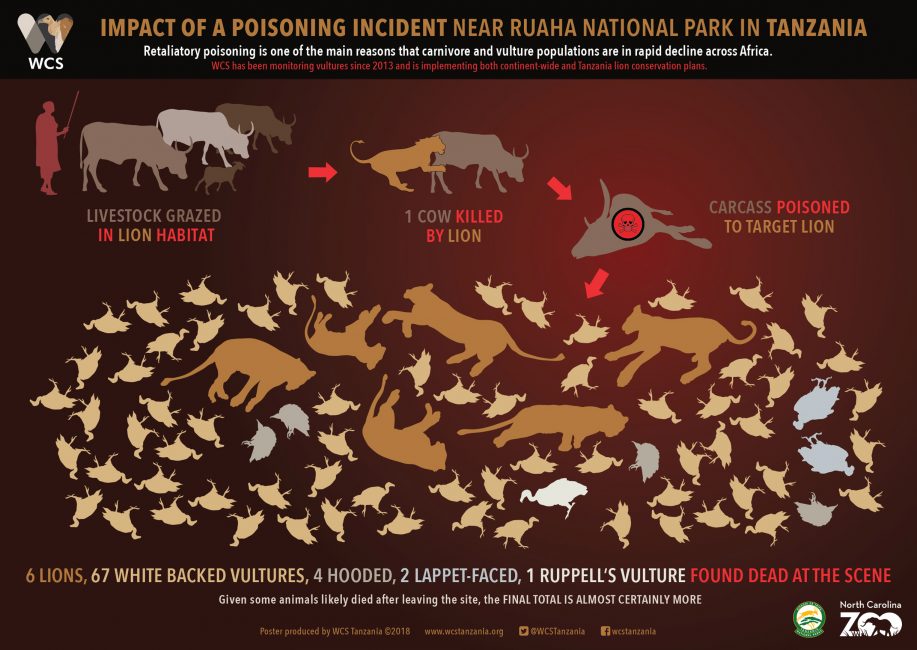
July 8, 2021
Vultures and Poisoning
- as seen by -
 Sarah Markes and Tim Davenport
@WCS_Tanzania
Sarah Markes and Tim Davenport
@WCS_Tanzania Our previous feature highlighted the value of vultures to humans and ecosystems. We described how vulture behavior helps prevent the spread of disease and vermin, but also how these important birds are seriously and increasingly threatened by humans.
All over the world, as human populations grow and expand into areas of wildlife habitat, increased human-wildlife interactions are inevitable. Particularly in areas where people rely on subsistence farming and pastoralism, these interactions often lead to conflict and wildlife persecution. Vulture poisoning is a pertinent example of this, with African vulture populations suffering massive declines in recent years as a result.
Vultures are now the most threatened group of birds in the world, and around 60 percent of African vulture deaths can be attributed to poisoning – primarily in retaliation for predation of livestock by carnivores such as lion and hyena. While not the intended victims, vast numbers of vultures can be killed by one laced carcass, which has cascading negative consequences for humans and their livestock.
The Wildlife Conservation Society produced this infographic based on data collected from a poisoning incident adjacent to Tanzania’s Ruaha National Park. It illustrates the numbers of dead birds and mammals found at the scene, but does not show the undoubtedly numerous other deaths that occurred at a distance from the immediate area.
It was produced in English and Swahili for use in environmental education and poisoning reduction awareness work. For print resolution copies please email sarahindar@gmail.com.
EDITOR’S NOTE: This is part of a regular series of Wild View posts featuring environment and conservation awareness materials created by Sarah Markes and Tim Davenport.
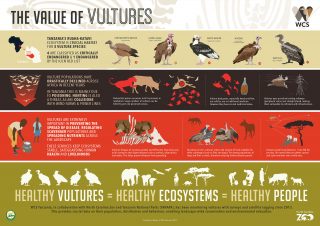
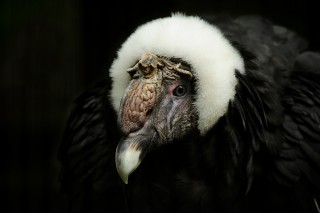
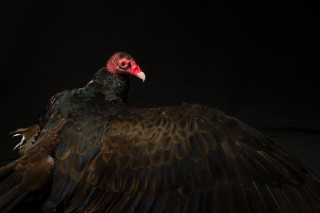
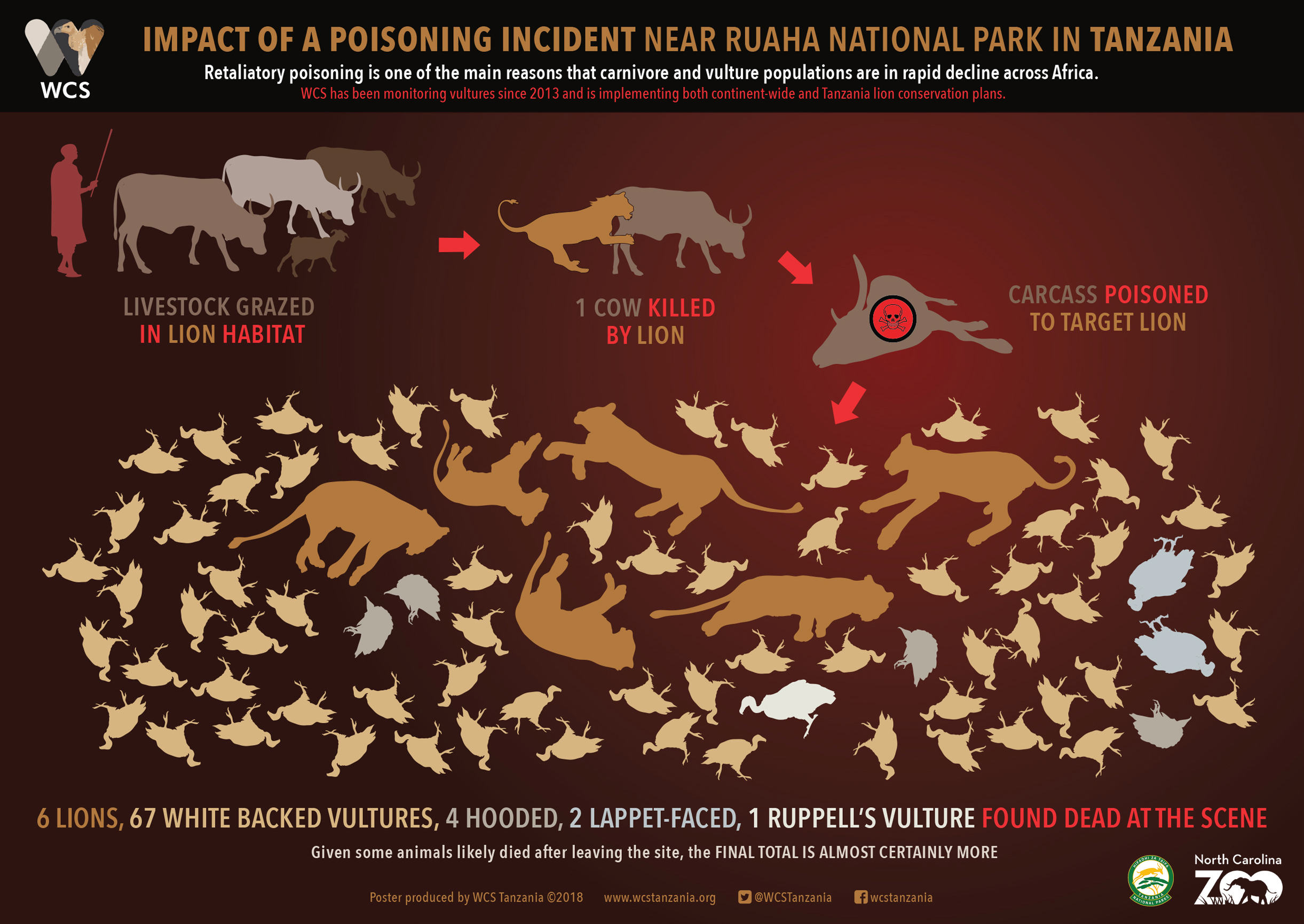
Leave a Comment
Akinwunmi Rukayat
April 27, 2023 at 3:36 am
Good